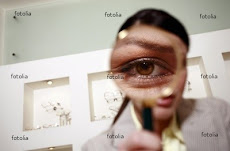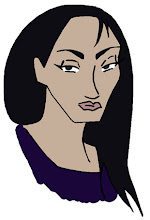European Union leaders have named Belgian Prime Minister Herman Van Rompuy and Britain's Catherine Ashton as EU president and foreign policy chief. Such a deal is a vote for consensus builders over big-name personalities and means that while European decision-making may become more streamlined, the EU will still struggle to punch its weight in international diplomacy.
Van Rompuy, virtually unknown on the world stage, is regarded as a sharp and efficient operator in his home country. He has been prime minister for only a year, but in that time has won high praise for bringing Belgium's long-divided Flemish and French-speaking communities closer together. In backing him for president of the EU Council, a move largely driven by France and Germany, EU leaders are asking Van Rompuy, a 62-year-old consummate politician fond of writing Haiku poems, to serve as a business-like chairman of the union.
"It's not a glamour team," an EU diplomat said. He can be expected to run a tight, well-organised agenda, and his behind-the-scenes style should help find consensus among the EU's 27 sometimes fractious states.
EFFICIENCY WINS OVER BIG NAME
The choice of Ashton to serve as high representative for foreign affairs is also a nod towards understated efficiency rather than the influence of a high-profile, big-name diplomat. Ashton, who has spent the past year serving as the EU's trade commissioner, has relatively little experience in foreign affairs. But she picked up her trade brief quickly and has earned a reputation as being an astute negotiator. "It is not a bad choice," said Hugo Brady, an analyst at the Centre for European Reform think tank, referring to the pairing. "Ashton does not have very strong foreign policy credentials, but she is a very capable person," he said.
KISSINGER VERSUS ERASMUS
KISSINGER VERSUS ERASMUS
From the outside, however, particularly from the point of view of Washington, Beijing or New Delhi, the EU's choices are likely to raise some question marks. If U.S. President Barack Obama or Chinese President Hu Jintao wants to "speak to Europe", they will now be expected to call Van Rompuy or Ashton. Instead Jose Manuel Barroso is likely to be a more high-profile touchstone for foreign leaders. To that extent, the choices of Ashton and Van Rompuy seem to go against one concept of the jobs, which was to increase the bloc's global clout as well as streamlining decision-making. But with 27 countries in the union, what is needed before the EU can become a major player in world affairs is a set of common foreign and security policy objectives.
To get those, negotiation, debate and compromise are needed first. Van Rompuy and Ashton, 53, will be instrumental in trying to achieve that, and the EU's leaders will know they have two skilled and efficient politicians working on the issues.
SISTERS ARE DOING IT FOR THEMSELVES
It can be expected that the US Democrat Secretary of State Hilary Clinton will find it very easy to strike up a warm working relationship with the Labour Party's Cathy Ashton with both sharing similar views on a multitude of subjects.
ASHTON THE QUIET FIXER
"(Ashton)'s never been a foreign secretary. However, she has been in the international trade business for quite some time and has quite of lot of experience in multilateral affairs," said Antonio Missiroli of the European Policy Centre. In her time as trade commissioner, Ashton has been key in bringing the United States and India together to kickstart the Doha round of world trade talks. She has also brokered the EU's largest foreign trade agreement, a 100 billion euro ($150 billion) pact with South Korea, and solved two of the EU's most intractable trade disputes. With international diplomacy closely tied to trade, and the EU constituting the world's largest economic trading zone, Ashton appears to be a choice that reflects the EU's desire to tie its economic strength closely to diplomatic influence.
In part of the quid pro quo of these selections FRANCE’S DE BOISSEU GETS COUNCIL SECRETARIAT and the German candidate (yet to selected by Germany) for the European Central Bank is now a shoe-in





No comments:
Post a Comment